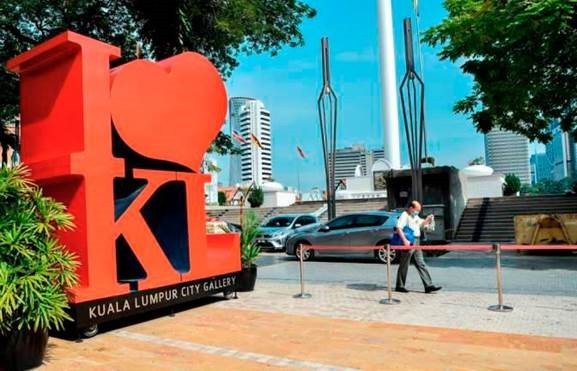
KUALA LUMPUR, Jan 12: The easing of interstate travel restrictions beginning Dec 7 provided a welcome reprieve for hotels and express bus operators who saw a jump in their businesses.
However, the sharp increase in COVID-19 cases in recent weeks has forced the government to reimpose the ban on interstate travel nationwide and enforce a 14-day Movement Control Order (MCO) in five states (Penang, Selangor, Melaka, Johor and Sabah) and three federal territories (Kuala Lumpur, Putrajaya and Labuan), beginning 12.01 am tomorrow (Wednesday).
Pahang, Perak, Negeri Sembilan, Kedah, Terengganu and Kelantan will be placed under Conditional MCO (CMCO) while Perlis and Sarawak will remain under Recovery MCO.
Once again, the major tourism players will be impacted and the industry, in general, is not expected to see much growth until nearly 60 to 70 percent of the population has been inoculated against COVID-19 and domestic and international borders are reopened.
In the meantime, to reinvigorate the tourism sector and help tourism players to cope with the losses they have been enduring since the COVID-19 crisis struck Malaysia and the rest of the world, the government has provided a slew of near-term and long-term initiatives under the Short-Term Economic Regeneration Plan (Penjana) unveiled in June last year and National Tourism Policy (DPN) 2020-2030 that was announced last month.
The government has injected RM1 billion into Penjana’s Tourism Sector Financing Scheme to finance transformation initiatives by small- and medium-sized enterprises in the tourism sector.
The 10-year DPN 2020-2030, meanwhile, is aimed at rejuvenating the nation’s tourism industry and ensuring its continuity and, once again, raising Malaysia’s profile as a preferred destination for international tourists.
Hotel sector recovery
Malaysia’s hotel sector, which is among the business sectors that have been badly hit by the ongoing pandemic, saw over 30,000 employees losing their jobs last year.
According to statistics revealed by the Malaysian Trades Union Congress in June last year, another 10,000 workers were told to go on leave without pay while more than 6,000 staff experienced salary cuts.
Many hotels nationwide enjoyed higher occupancy rates between June and September last year after RMCO was imposed nationwide and interstate travel was permitted.
However, travel restrictions were once again imposed on Oct 10 when CMCO was enforced in Sabah, Selangor, Putrajaya and Kuala Lumpur due to the spike in COVID-19 cases following the previous month’s Sabah state election. And, on Dec 7, the government lifted the interstate travel restrictions which again led to an increase in hotel bookings.
Malaysia Budget Hotel Association president Emmy Suraya Hussein said hotels outside the Klang Valley such as resorts located on islands, beaches and highlands saw an increase in bookings as Malaysians made their way to local destinations for vacations with their families.
She told Bernama occupancy in Kuala Lumpur hotels is still low as they still cannot serve as venues for courses, forums and large gatherings due to the ongoing CMCO.
According to Emmy Suraya, since the start of the MCO last March, 20 percent of the estimated 2,300 budget hotels nationwide have been forced to either close down or stop their operations temporarily.
“From my observations, those hotels that are still operating just want to generate enough revenue to sustain their operations for now and not to make a profit. As can be seen, many hotels are offering room rates and packages that are far cheaper than what they charged before the MCO period,” she said.
On DPN 2020-2030, Emmy Suraya hoped that the federal and state governments would upgrade tourist spots as well as their facilities to attract more visitors which, in turn, will revive the hotel industry, especially budget hotels which have now become the choice of local travellers.
She also said that due to the need to practice cost-saving measures, many hotels are only rehiring their laid-off workers as and when they are needed.
“Many hotel workers now have to do multitasking whenever their hotels receive heavy bookings,” she added.
Express bus services
Peninsular Malay Express Bus Operators Association president Mohamed Kaharrudin Salleh said ticket bookings went up by 30 percent last month.
“We had to ask many of our drivers who were forced to take a ‘rest’ following the enforcement of MCO and CMCO to return to work. In fact, some bus companies had to hire new drivers,” he said.
He said the increase in demand for express bus services helped the operators concerned to recover some of the losses they had suffered as a result of the MCO.
“As the pandemic is still ongoing, we have to ensure physical distancing among our passengers. The drivers and passengers are also required to wear a mask and use hand sanitiser,” he said.
On DPN 2020-2030, Mohamed Kaharrudin hoped that it would help to revive the tourism sector and demand for express bus services.
He said the slump in interstate travel last year had resulted in express bus operators saddled with monthly repayments for their 737 buses and salaries for its 3,000 employees totalling RM60 million a month.
“With the launch of the 10-year plan for tourism, I hope tourism and transport industry players will be able to return to the pre-MCO era,” he added.
Source: https://www.thesundaily.my/local/industry-players-banking-on-dpn-2020-2030-to-revive-domestic-tourism-FC6062986

